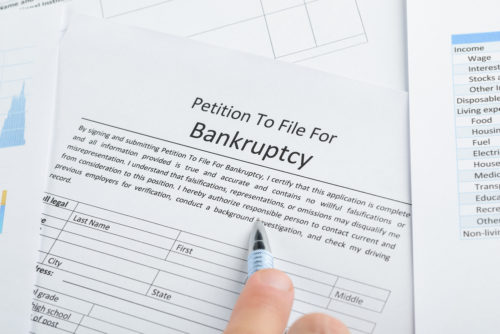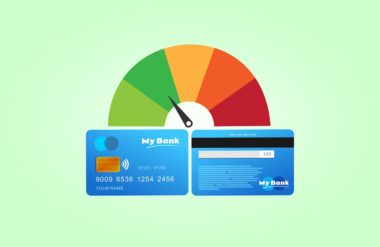Bankruptcy is the process by which individuals or businesses deal with debts that have become unmanageable. When you seek this kind of debt relief, you go to a bankruptcy court. The court looks at your assets, income, and debt, and decides if bankruptcy is the only solution. They then work with you to pay creditors as much as possible. The process could include selling your assets to make payments.
There are a variety of reasons to file bankruptcy. One common reason is unmanageable medical debts, while another is the inability to handle mortgage payments. Also, some people file bankruptcy because of excessive credit card debt. Most often, however, there is a combination of factors that lead to bankruptcy.
The fees and processes associated with bankruptcy depend on the type of petition you file with the court. For consumers, the two most common forms of bankruptcy are Chapter 7 and Chapter 13.
Table of Contents
Chapter 7 Bankruptcy Fees
A Chapter 7 bankruptcy is the most common form of bankruptcy, and it has the most straightforward process. When you file a Chapter 7 bankruptcy, the court looks at your assets. They may require that you liquidate (sell) assets, such as a car or property, to pay for your debts. After you have paid as much as possible, the court will then forgive any remaining debt. Creditors cannot pursue payments after the court completes the discharge (repayment and forgiveness) process.
According to information provided by the Administrative Office of the United States Courts, you need to pay a $245 case filing fee, a $75 administrative fee, and a $15 trustee surcharge. In most cases, you pay these Chapter 7 bankruptcy fees, which total $335, to the court clerk when you file your bankruptcy paperwork.
When you enter bankruptcy, the court will also require that you attend credit counseling. In addition to setting aside the time to participate in sessions, you also need to pay for them. Nonprofit credit counseling services typically cost between $5 and $50 per session, with an average overall cost around $20-$100.
Also, you may have to pay miscellaneous fees, which will vary depending on the jurisdiction and the requirements of your particular case.
The highest cost for filing bankruptcy is legal fees. You need to hire a lawyer to handle the bankruptcy petition and other documents. Prices can vary depending on attorney rates in your state. Average costs nationwide, according to the National Bankruptcy Forum, are $1,250 for Chapter 7 cases. Lawyers generally cost more in major cities, with prices reaching $2,000 or more, on average.
Luckily, attorney fees are public record. You can use the Public Access to Court Electronic Records (PACER) system to research costs before you hire an attorney.
Chapter 13 Bankruptcy Fees
Chapter 13 bankruptcy is another option for individuals. The process is different than Chapter 7. Chapter 13 is also known as a “wage earner’s plan.” In a Chapter 13 case, you do not have to liquidate your assets. Instead, you prove that you can repay your debts under an alternative repayment plan. Then, you make installment payments over a three to five year period.
Once the court approves your repayment plan, you make the payments, and the creditors must stop all collection efforts. You enter into Chapter 13 bankruptcy for the same reasons as Chapter 7. However, since you do not have to liquidate your assets, you aren’t in danger of losing your home, vehicle, or investments. However, you need to have a realistic payment plan and complete repayment in five years or less.
When you file a Chapter 13 bankruptcy, you need to pay a filing fee of $235 and administrative fees totaling $75. The overall total is $310.
However, legal fees are generally more expensive for Chapter 13 bankruptcy cases. According to the National Bankruptcy Forum, the average cost is around $3,000.
You also have to pay for credit counseling sessions, which can be between $5 and $50.
Other Possible Fees Associated With Filing for Bankruptcy
According to the National Bankruptcy Forum, the total cost of Chapter 7 bankruptcy with an attorney is between $1,500 and $3,000, and the average total cost of Chapter 13 bankruptcy with a lawyer is $3,000 to $4,000.
Here are some other costs to consider:
Credit Counseling/Financial Management Courses
Credit counseling is a required part of bankruptcy proceedings. However, it is one of the lower-cost aspects of the process. Some nonprofit organizations only charge a nominal fee for counseling services, and the overall price for the required sessions should be somewhere between $20 and $100.
Attorney Fees
An attorney may not be essential for all bankruptcies, but the process is usually very complex, and, in many cases, you need a lawyer to ensure proper discharge of debts. In a straightforward case, the average costs will be around $1,250 for Chapter 7 and $3,000 for Chapter 13.
However, these costs can vary significantly by location, and the costs could rise if there are any complications. If a trustee or creditor (through the trustee) objects to your payment plan or the valuation of one or more of your assets, your lawyer will have to argue for you in court. They will charge you for the time spent collecting evidence and preparing the case. However, a good lawyer will discuss other options with you before going ahead with an expensive legal effort.
How to Pay Bankruptcy Fees
There are different ways to pay the fees associated with bankruptcy.
- In general, you pay the initial filing fees and administrative costs to the court clerk when you file the case.
- If you work with an attorney, they will handle the initial fees, and you will either reimburse them or get billed for the fees.
- According to the Administrative Office of the United States Courts, you can pay these filing fees in up to four installments if the court approves your request to do so.
- Some attorneys provide a free first consultation, which they can use to discuss a payment plan. Some attorneys will allow you to pay in installments, while others include their fees in your debt repayment plan. For example, you will pay the trustee an installment payment, and they will then pay the lawyer as well as your creditors.
Image Source: https://depositphotos.com/





